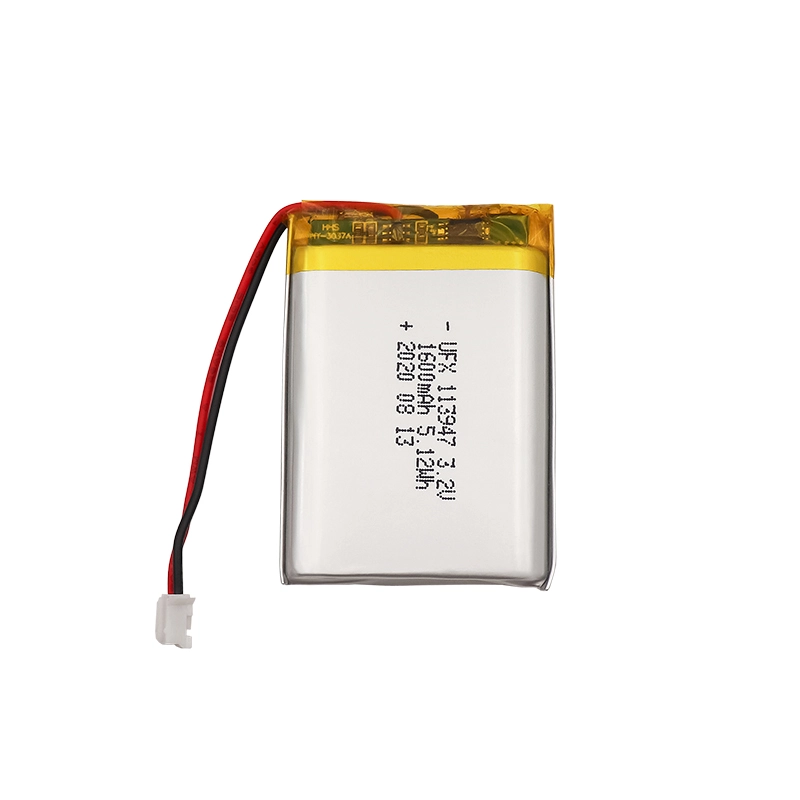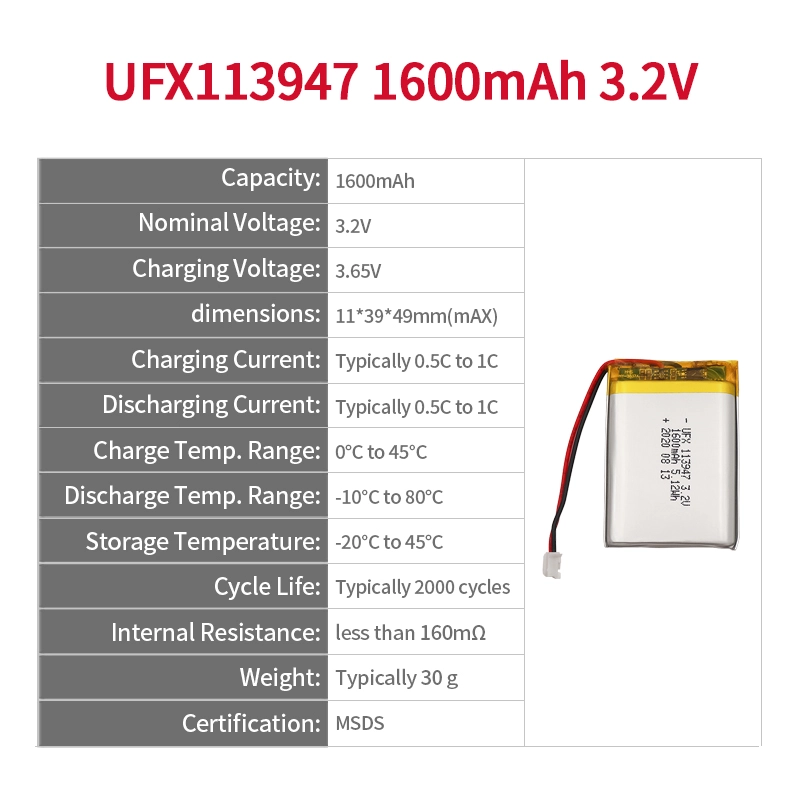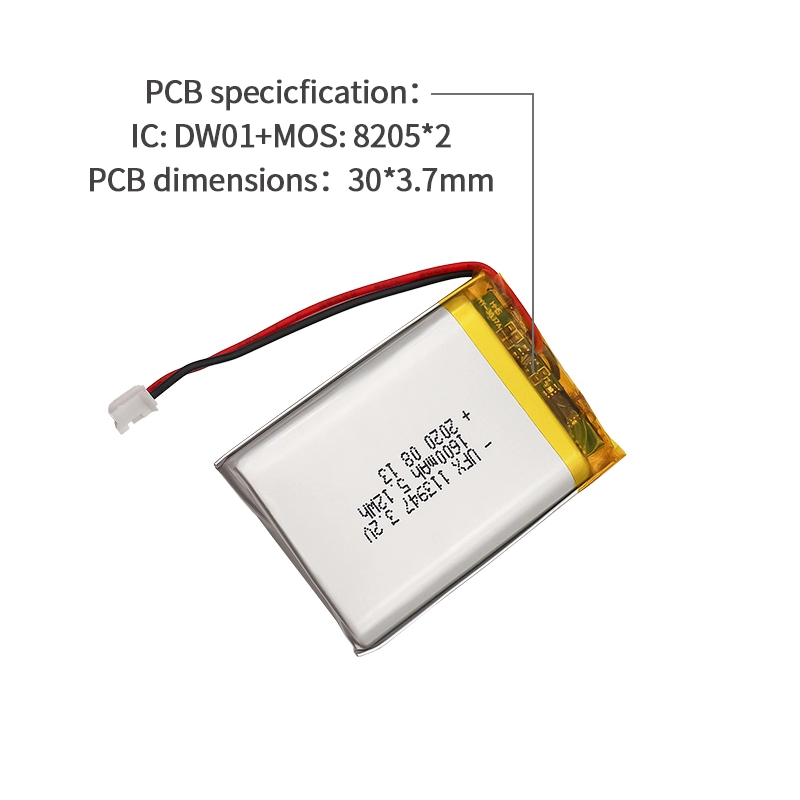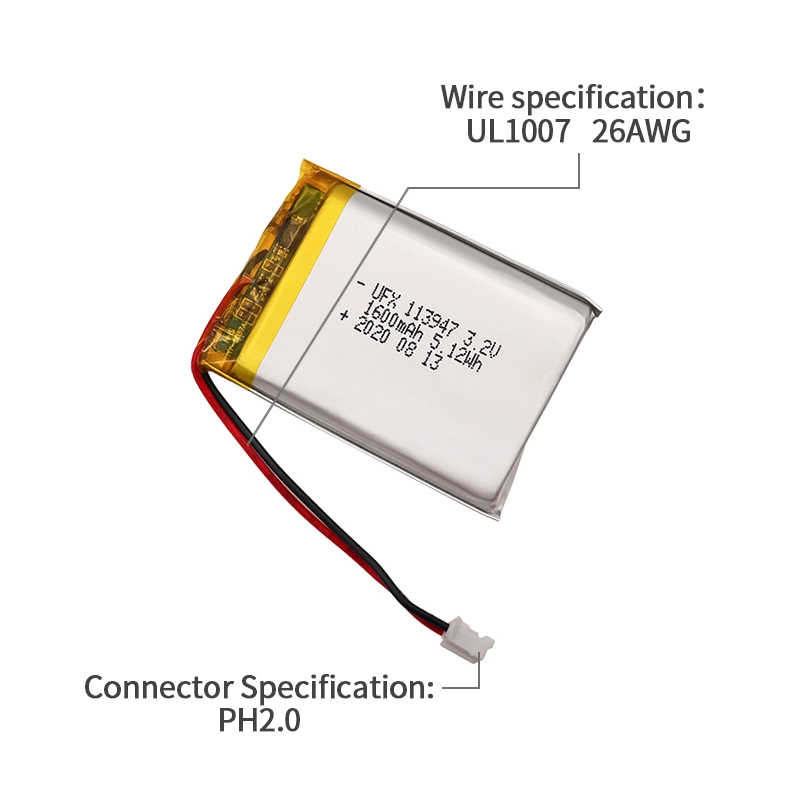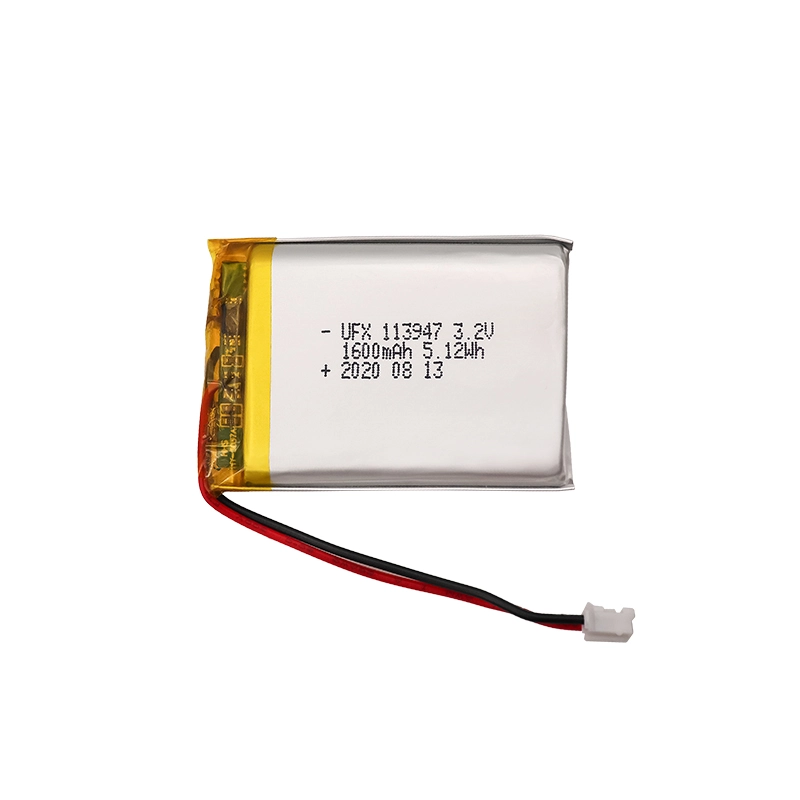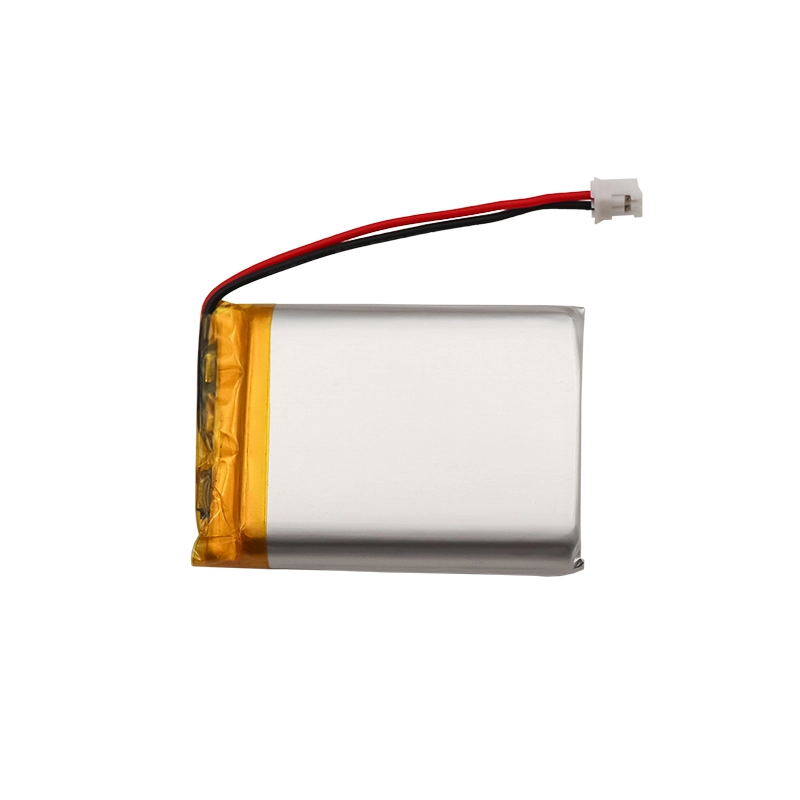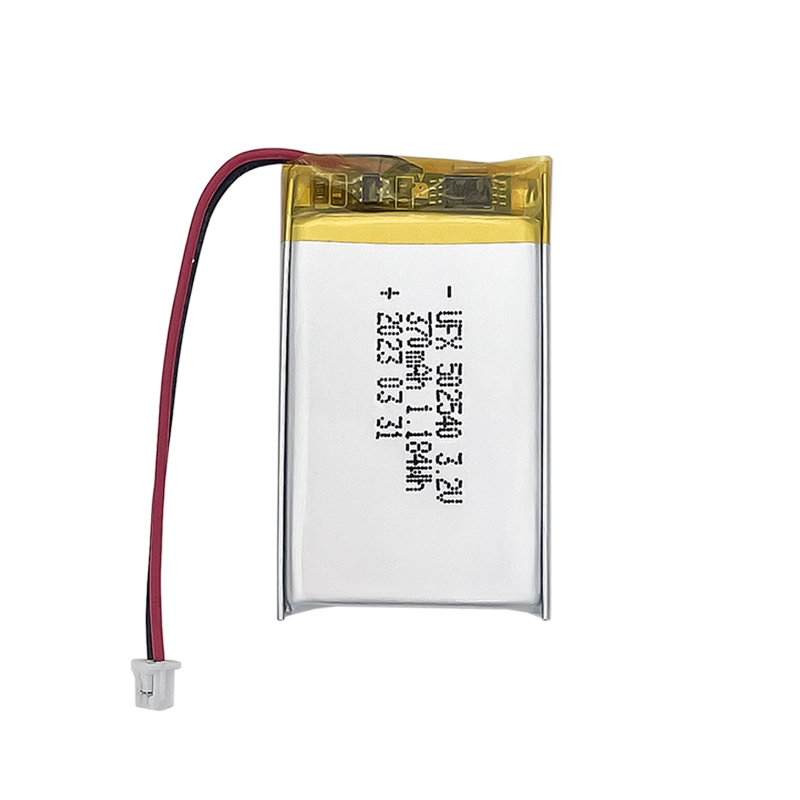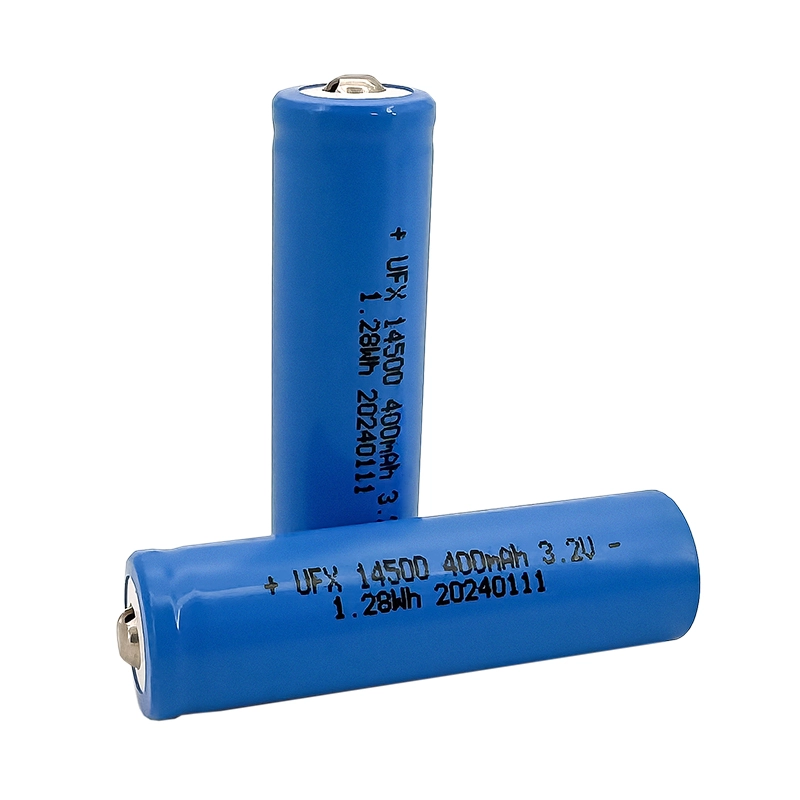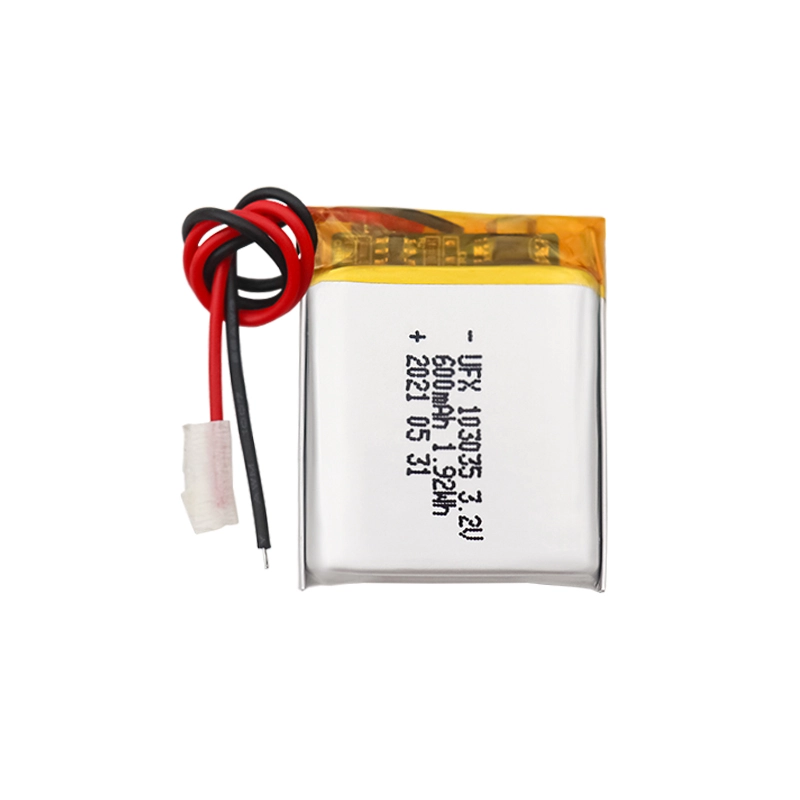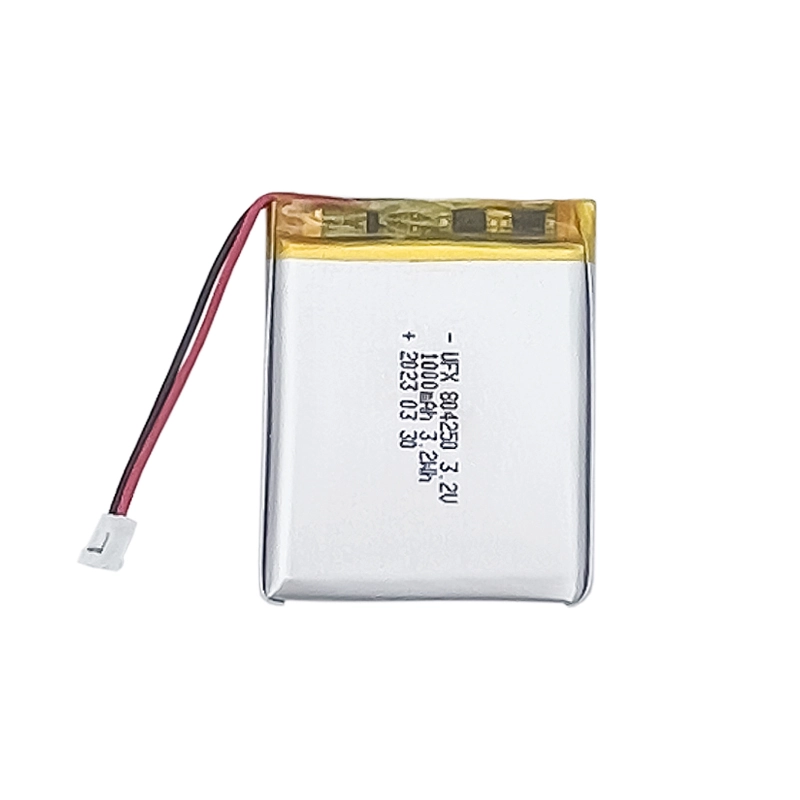-
Product Details
-
Specs
-
Capacity Fast Calculator
-
Application
-
Content
-
FAQs
-
Reviews

Product Details
Discharge Rate
Long Cycle Life
Ultra-Low Self-Discharge
Wide Temperature Range


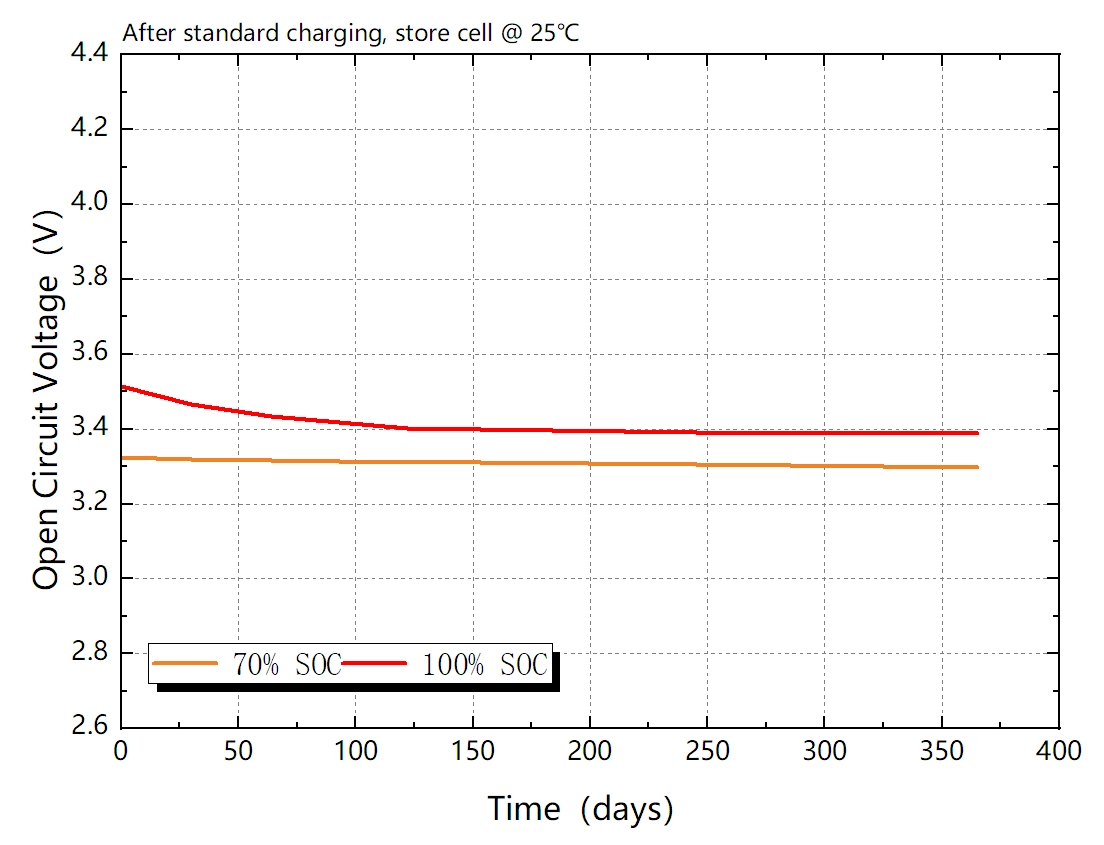
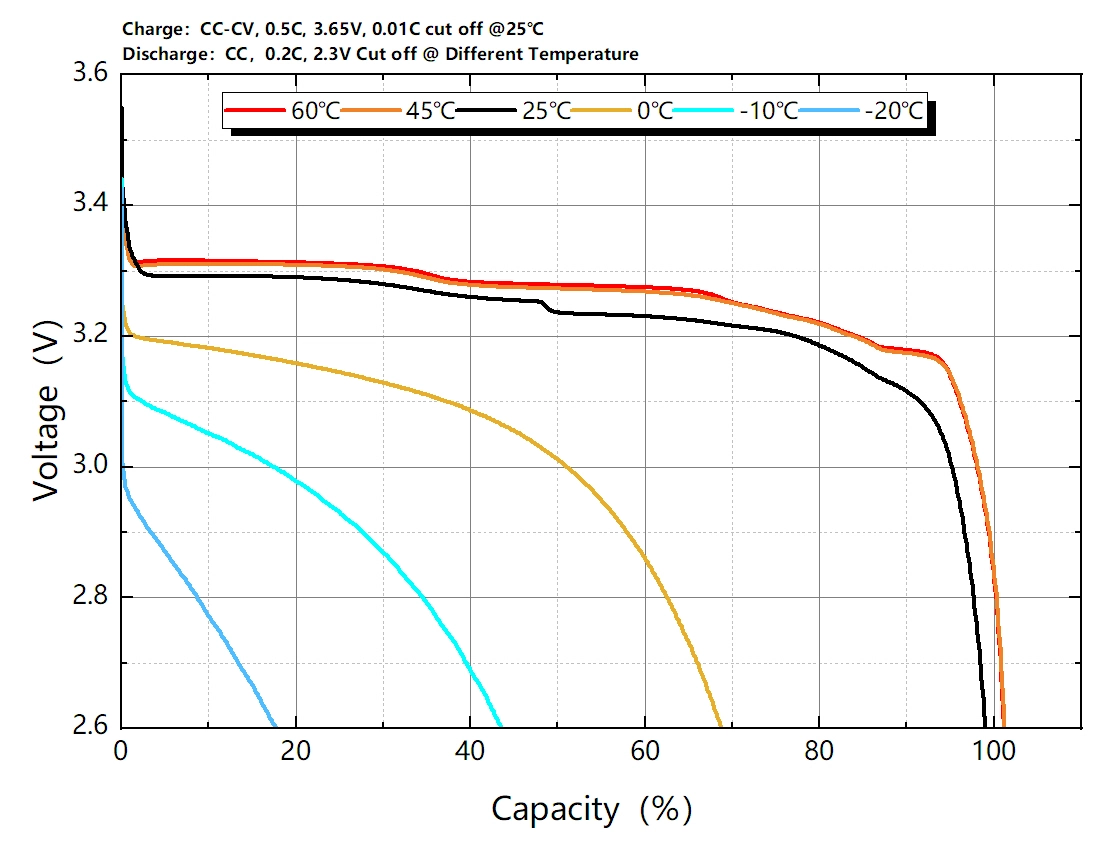
Battery Capacity Testing
Each LiFePO4 battery undergoes meticulous testing pre-shipment, guaranteeing that the voltage, current, and charging-discharging parameters align within specified and safe operational parameters.


Sustainable Design
Utilizing A-grade battery cells, these leak-proof LiFePO4 batteries embrace an environmentally friendly design, minimizing ecological impact without compromising performance.
Applications
The battery is designed for use in various applications, including but not limited to tablets, emergency lighting, home energy storage, power tools, and wheelchairs.
Battery Specification
-
1. Mechanical Characteristics
Cell 113947 PCM Yes NTC No Weight appr. 30g Configuration 1S1P -
2. Electrical Specification
Capacity 1600mAh Nominal Voltage 3.2V Energy 5.12Wh Internal Resistance less than 160mΩ Max. Charge Voltage 3.65V Discharge Cut Off 2.2V Max. Charge Current 1600mA
Max. Discharge Current 1600mA Standard Charge Current 800mA Standard Discharge Current 800mA Charging Temperature 0℃ to 45℃ Discharging Temperature -10℃ to 80℃ Storage Temp.Range 1 year at -20℃ to +30℃ 3 mos. at -20℃ to +45℃ 1 mo. at -20℃ to +60℃ Cycle life 1000 cycles ≥92% 1500 cycles ≥88% 2000 cycles ≥80% -
3. Cell protection
Overcharge Detection 3.75V ±25mV (900 to 1500msec delay, release 3.6V ±50mV) Overdischarge Detection 2.1V ±50mV (105to 75msec. delay, release 2.3V ±100mV) Overcurrent Detection 2.5A to 4.5A (5 to 10msec. delay) Short protection Yes
Lipo Battery Cell Capacity Fast Calculator
Please enter your battery information to calculate the battery capacity and energy.
The capacity calculated by this tool is only an approximate value. If you need an accurate assessment, please contact our professional engineers.
3.2 V 1600mAh LiFePO4 Battery Application
LiFePO4 Battery For Tablet
Tailored for tablet devices, our LiFePO4 batteries are meticulously engineered to provide optimal performance. With a focus on temperature resilience, these batteries excel in diverse environmental conditions, ensuring seamless operation for your tablet. The high energy density embedded within these batteries guarantees a reliable and sustained power supply, eliminating concerns about abrupt power depletion and allowing uninterrupted usage for your tablet in various scenarios.

LiFePO4 Battery For Lighting
Our lithium batteries for lighting solutions showcase high energy density, ensuring prolonged and consistent illumination for various lighting systems. Their robustness and adaptability in shape make them versatile for seamless integration into different lighting designs, offering reliable and customizable power solutions for indoor and outdoor applications. With exceptional temperature resistance, these batteries guarantee sustained performance, providing reliable lighting even in extreme weather conditions.

LiFePO4 Battery For Medical
Engineered for medical devices, our lithium batteries prioritize high energy density and reliable performance, ensuring sustained power in critical healthcare equipment. With exceptional low-temperature resistance, these batteries guarantee consistent functionality in varied healthcare settings. Their versatile designs seamlessly adapt to diverse medical device configurations, providing dependable power solutions.

LiFePO4 Battery For Power Tool
Our lithium batteries for power tools embody high energy density, delivering prolonged and robust power for uninterrupted use in demanding projects. With exceptional durability, these batteries endure the rigors of heavy-duty applications and frequent recharging cycles. Their adaptable shapes cater to various power tool designs, ensuring reliable and customizable power solutions for professionals.

The Complete Guide For 3.2 V 1600mAh LiFePO4 Battery
A 3.2 V 1600mAh LiFePO4 battery serves as a crucial power source for various electronic devices. This guide delves into its components, functionalities, and best practices for optimal use.
Part 1. Advantages and Applications
The 1600mAh 3.2 V LiFePO4 battery's compact size and high energy density make it ideal ensuring uninterrupted power for portable monitoring devices or small diagnostic tools. Wearable technology, such as fitness trackers or smartwatches, thrives on their lightweight and efficient energy delivery, enhancing user experience.
Part 2. Technical Specifications
With a capacity of 1600mAh, it efficiently stores and delivers charge, while the 3.2 V output ensures a stable and reliable power supply. Tailored for low-power applications, it maintains a steady voltage throughout the discharge cycle, ensuring consistent device performance.
Part 3. Safety and Handling
The battery integrates protective mechanisms to prevent overcharging, over-discharging, and short circuits. Following storage guidelines and temperature controls ensures safe and efficient operation, prolonging the battery's lifespan.
Part 4. Maintenance and Longevity
Proper charge-discharge cycles, avoiding complete discharges, and adhering to temperature guidelines are essential. Regular maintenance checks help detect issues early, ensuring optimal battery performance.
Part 5. Buying Guide and Recommendations
For reliable and customized solutions, consider sourcing your 1600mAh 3.2 V LiFePO4 batteries from Ufine custom battery. Our commitment to quality assurance and tailored battery solutions ensures dependable performance for your specific needs.
FAQs
-
What distinguishes LiFePO4 batteries from other battery chemistries in industrial applications?
LiFePO4 batteries are known for their high energy density, longer cycle life, and enhanced safety features, making them ideal for demanding industrial use. -
How does the energy efficiency of LiFePO4 batteries contribute to reducing operational costs in industrial settings?
LiFePO4 batteries offer high energy efficiency, reducing overall operational costs by delivering more power with less wasted energy during discharge. -
What safety measures are incorporated into LiFePO4 batteries to prevent issues like overcharging or thermal runaway?
Our LiFePO4 batteries integrate advanced management systems to prevent overcharging, and overheating, and ensure safe operation under various conditions. -
How long does it take to fully charge a lithium battery?
Charging time depends on the battery's capacity and the charger's current. For example, if the battery capacity is 4000mAh and the charger current is 2500mA, charging time = 4000mAh / 2500mA = 1.6 hours. -
How long do lithium batteries last?
Our lithium battery cycle life is more than 500 times. The lifespan of a lithium battery depends on various factors, such as usage patterns, charging and discharging conditions, and overall maintenance. -
Can lithium batteries be customized for specific applications?
Yes, lithium batteries can be customized to meet specific requirements. This includes customizing the battery capacity, voltage, size, shape, and other parameters to suit the application's needs. Capacity: 20mAh~12000mAh, voltage: 3.2 V~48 V.
Reviews
High Energy Density
It stores large amounts of energy in a smaller and lighter package
Longer Cycle Life
Withstands extensive charge and discharge cycles
Low Self-Discharge
Maintains power longer when not in use
Safety
Minimizes the risk of accidents and ensures safe operation
Related Articles
About Lithium Battery Industry News

How to Jumpstart a Dead Lithium Ion Battery?
Lithium-ion batteries power many devices, but they can die. Learn how to safely jumpstart a dead battery and extend its lifespan.
2025-1-22 Henry

When to Charge Lithium Ion Battery?
Lithium-ion batteries power many devices, but knowing the best time to charge them is key for longevity and performance. Here's how to charge effectively.
2025-1-21 John
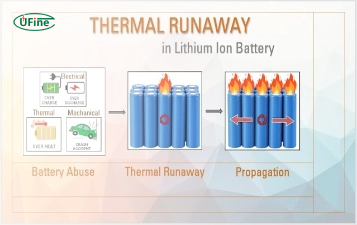
What Is Thermal Runaway Lithium Ion Battery?
Thermal runaway in lithium-ion batteries poses fire and explosion risks. This article covers its causes, effects, and prevention methods for safety.
2025-1-20 Henry
